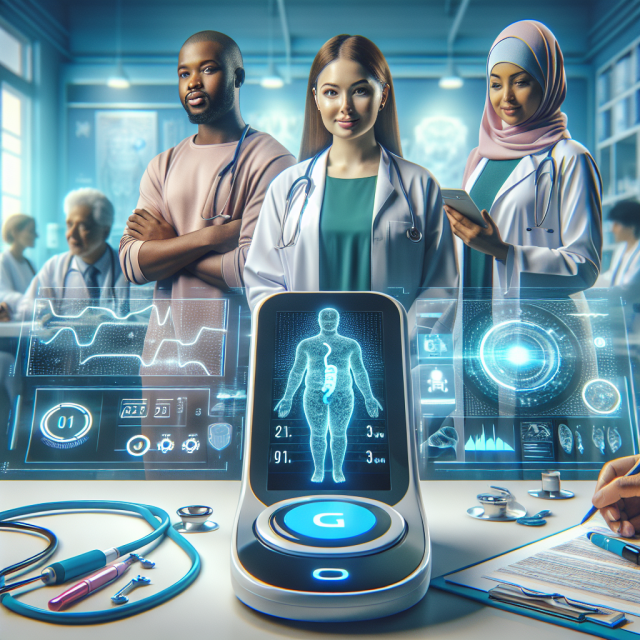Table of Contents
Introduction
When was the last time you felt like you were truly transforming a patient’s life? With advances in diabetes treatment, that feeling is becoming more frequent. Modern strategies now offer groundbreaking ways to manage diabetes and improve patient outcomes. This guide explores these innovations and provides actionable insights for healthcare professionals.
The Current State of Diabetes Treatment
A Growing Epidemic
Diabetes affects over 537 million people worldwide, and the number is steadily increasing. While the disease itself is complex, so are the challenges in managing it. Rising obesity rates, unhealthy diets, and sedentary lifestyles have made diabetes a public health crisis.
Challenges with Traditional Approaches
Traditional treatments like Metformin and Insulin have been effective but are often limited by patient adherence, side effects, and variability in individual response. This has created an urgent need for more innovative, patient-centered approaches to care.
Advancements in Diabetes Medications
The New Generation of Drugs
The latest medications, such as Tirzepatide and Semaglutide, represent a paradigm shift in diabetes care. These drugs act on multiple metabolic pathways, offering not just blood sugar control but also weight loss and cardiovascular benefits. Their dual action on GLP-1 and GIP receptors ensures better outcomes for patients with Type 2 diabetes.
SGLT2 Inhibitors: Beyond Glycemic Control
Medications like Empagliflozin and Dapagliflozin go beyond glucose regulation. They also offer renal and cardiovascular protection, making them ideal for patients with comorbidities like chronic kidney disease and heart failure.
For more detailed information, visit Diabetes in Control.
Technology: The Game Changer in Diabetes Care
Continuous Glucose Monitoring (CGM)
Imagine managing diabetes without frequent finger pricks. CGM devices, like Dexcom G7 and Freestyle Libre 3, provide real-time glucose readings. These devices act like a health GPS, guiding patients and professionals to better glycemic control with fewer complications.
Telemedicine and Digital Health
With apps like MySugr and BlueStar Diabetes, patients can monitor their health, receive reminders, and share data with their providers. Telemedicine platforms have also revolutionized care delivery, offering more flexibility and accessibility to patients in remote areas.
AI-Driven Solutions
Artificial intelligence tools are reshaping diabetes management. These systems analyze patient data to predict complications, suggest interventions, and even recommend personalized treatment plans, saving time for clinicians and improving accuracy.
Personalized and Holistic Care Approaches
Tailoring Treatments to Individual Needs
No two diabetes patients are the same. Personalized medicine uses genetic, metabolic, and lifestyle data to craft tailored treatment plans. For example, pharmacogenomics can identify how patients respond to medications, reducing trial-and-error in drug selection.
Mental Health and Behavioral Support
Managing diabetes can be emotionally overwhelming. Addressing psychological aspects through counseling, coaching, and mental health apps like Sanvello ensures a holistic approach to care. Empowering patients emotionally can significantly improve adherence and outcomes.
Conclusion
Innovation in diabetes treatment has never been more exciting or impactful. From cutting-edge medications to life-changing technology and personalized care, healthcare professionals have more tools than ever to make a difference. By embracing these advancements, we can help patients live healthier, more fulfilling lives.
FAQs
1. What are the most recent breakthroughs in diabetes medication?
New drugs like Tirzepatide and Semaglutide offer dual benefits of glucose control and weight loss, revolutionizing diabetes care.
2. How does technology improve diabetes management?
Devices like CGMs and AI-driven tools provide real-time data, predict complications, and enhance decision-making for both patients and professionals.
3. What is the role of mental health in diabetes care?
Emotional well-being is crucial. Addressing mental health challenges improves adherence, reduces stress, and enhances overall quality of life.
4. Are there options for personalized diabetes care?
Yes, personalized medicine tailors treatments to individual genetics, lifestyle, and metabolic needs, improving outcomes and reducing trial-and-error.
5. How can telemedicine benefit diabetic patients?
Telemedicine offers convenient consultations, better monitoring, and greater access to specialists, especially for those in remote locations.

